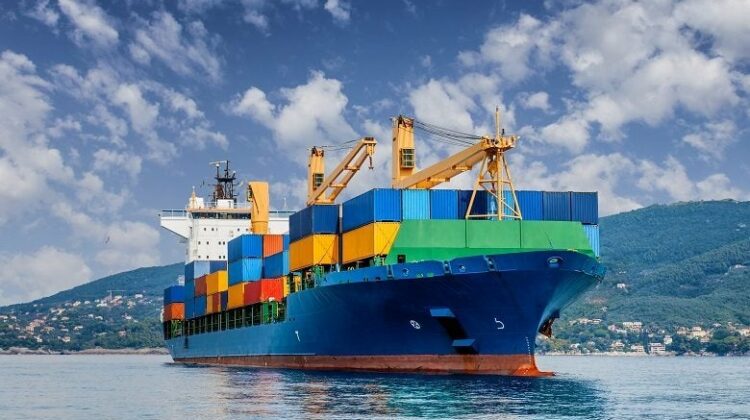
Shipping sector poised for ‘Infrastructure’ status, unlocking expanded financial aid opportunities
NEW DELHI : In a strategic move to enhance financial support and growth opportunities, the government is considering granting the shipping sector “infrastructure” status. This designation could open the door for broader financial aid, easier access to credit, and more favorable financing terms for key players within the industry.
The new classification would align the shipping sector with other core industries, enabling it to access funding typically reserved for infrastructure projects. Analysts expect that this could facilitate much-needed investment in port facilities, fleet modernization, and related maritime infrastructure. Additionally, the move could help reduce operational costs by making the sector eligible for benefits like reduced borrowing rates and tax incentives.
If implemented, this change would offer broader financial aid options, including more accessible credit lines, preferential lending rates, and tax incentives to support modernization efforts across various types of maritime operations. The comprehensive infrastructure tag could drive substantial investment, reduce operational costs, and strengthen the sector’s role in both international trade and domestic logistics.
Such a move would underscore the government’s commitment to bolstering the shipping industry as a critical component of national infrastructure, creating potential ripple effects across supply chains and promoting economic resilience.
The government is in preliminary discussions to grant “infrastructure” status to the entire shipping sector, potentially enabling broader financial support for all types of vessels, according to sources. Initially sought only for coastal vessels by the Ministry of Shipping, the Ministry of Finance is now considering extending the designation to encompass a wider array of maritime activities.
As part of this process, the finance ministry has initiated consultations with banks and financial institutions, including the National Bank for Financing Infrastructure and Development (NaBFID). This move would pave the way for the shipping industry to access an expanded range of financial aid options, such as concessional lending rates, investment incentives, and credit facilities designed to stimulate industry growth.
“These are preliminary discussions, and the shipping ministry has also made certain recommendations. We are examining the issue, and the proposed changes can be part of a more comprehensive maritime policy, including a shipbuilding and maritime development fund,” shared a government official, who wished to remain anonymous.
If approved, the infrastructure status would be a significant boost for the sector, attracting investment and easing operational costs. The comprehensive maritime policy under consideration could foster development across the supply chain, with potential long-term benefits for trade, shipbuilding, and economic resilience.
At present, shipbuilding and shipyards are granted infrastructure status, allowing them access to long-term low-cost project loans and to issue infrastructure bonds for meeting working capital requirements. Extension of similar benefits to the entire industry is expected to provide a boost to the indigenous shipping industry.
“There have been various representations on the matter, and accordingly, suggestions have been sought from both banks and other stakeholders. A final decision will be taken only after consultation with the RBI,” the official said.
Earlier this year, a parliamentary committee had recommended that the government consider extending infrastructure status granted to shipyards to all ships and vessels, not only coastal shipping. It had further made a case for setting up a specialised financing institution or marine finance scheme that could provide a much-needed boost to the shipbuilding industry.
As part of its Maritime India Vision 2030, the government is moving toward granting “infrastructure” status to the entire shipping sector, aiming to propel India into the top 10 shipbuilding nations—a substantial leap from its current 22nd rank. This policy shift would align with broader efforts to enhance India’s maritime infrastructure, attracting investment, supporting shipbuilding, and solidifying India’s position in global maritime trade.
To incentivize growth, the government has already introduced the Shipbuilding Financial Assistance Policy. This scheme offers financial aid to domestic shipyards for contracts signed between April 1, 2016, and March 31, 2026, with subsidies starting at 20% in 2016 and tapering to 11% by 2026. Additionally, the government plans to establish shipbuilding clusters in key states, including Gujarat, Andhra Pradesh, and Maharashtra, creating concentrated hubs for maritime industry growth.
In consultations, the finance ministry has engaged banks and financial institutions like the National Bank for Financing Infrastructure and Development (NaBFID) to discuss broader financial assistance and incentives for the sector. A comprehensive infrastructure status could open doors to more favorable lending rates and tax concessions, encouraging investment in modernization and expanding domestic capacity.
Moreover, a parliamentary committee has recommended the introduction of a risk insurance cover for ships in India, modeled after schemes in South Korea and China, which could attract both domestic and foreign investors to fund maritime projects. These steps reflect India’s ambition to establish a robust maritime policy that supports shipbuilding, infrastructure development, and a resilient supply chain.
The government’s comprehensive approach could mark a transformative era for India’s shipping and shipbuilding industries, enhancing both international competitiveness and economic growth across maritime sectors.

